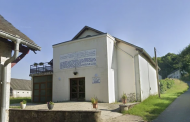Sara Rashad
Tahrir al-Sham fears the consequences of the spread of Covid-19 in the places it controlled, while the decision criticizes splinter leaders from the authority for the decision, saying that closing the mosques is an innovation and a move away from religion, according to their description.
The commission remains silent about criticism, while those who reject the decision, including Abu Al-Yazqan Al-Masry, who posted on his channel on Telegram, posted pictures of him standing on the top of a pulpit.
Stressing his complete refusal to close the mosques for any reason, claiming that Corona, as a tribulation, increases the importance of the mosques, as it is the place where a Muslim returns to pray.
He added, “It may prevent people from praying on Friday, and from attending groups in the mosques, if the epidemic spreads in the town, but the mosques are not closed.”
In turn, the leader who returned to the commission after his defection for a few days, Jamal Zainia, nicknamed “Abu Malik al-Tali”, commented on the decision to close the mosques, saying during his defection period: “The Islamic nation was afflicted by disrupting Friday and groups in the mosques, on the pretext of spreading the epidemic and preserving people’s lives, Without controlling the crowded markets where there is a lot of evil, ”he added, noting that this includes refraining from maximizing God’s rituals.
And to close the mosques, the people of Sharia agreed on the necessity of closing them, in addition to preventing any form of gathering, which exists in daily life.
Al-Tali had criticized the authority for justifying the decision to defect it, as he said: “His opinion is no longer taken within the body, and many things inside it are no longer known about anything.”
The decision to close mosques and suspend Friday prayers in Idlib comes in conjunction with attempts by Tahrir al-Sham to present itself to the international community, specifically America, as a moderate, non-jihadist entity, to avoid any decisions to dissolve or dismantle it.
This is consistent with reports saying: America is preparing to create a role for the liberation of the Levant in Syria in the coming period. The American special envoy to Syria, James Jeffrey, said in late January 2020: The liberation of the Levant did not represent any danger at the international level, and its activities focused on fighting the Syrian regime. Just.
While these statements were considered a green light from America, satisfied with the commission, the authority’s leader, Abu Muhammad al-Golani, appeared on the International Crisis Group website, February 2020, to talk about the authority’s failure to take a base from Syria to carry out operations at the international level.
And considered giving al-Golani space to appear on the American public, as an improvement of the image of al-Golani and his organization, and in that context, he understands the actions and decisions of the body diverging from it regarding terrorist behavior, such as the decision to close mosques, even if they are within the conviction of extremist ideology.
In a statement to the reference, the political writer, Muhammad Faraj Abu Al-Nur, stresses the terrorism of the commission and its unquestionable affiliation with Al-Qaeda, considering that its plan to improve its image in front of the world will only succeed with Turkish-American sponsorship.
Abu Al-Nur stressed that the commission will face a crisis with extremist leaders inside or splinter from it, indicating that it may resort to liquidating them or excluding them from within its ranks, as happened with “Abu Al-Yagdhan” a year ago.







































admin in: How the Muslim Brotherhood betrayed Saudi Arabia?
Great article with insight ...
https://www.viagrapascherfr.com/achat-sildenafil-pfizer-tarif/ in: Cross-region cooperation between anti-terrorism agencies needed
Hello there, just became aware of your blog through Google, and found ...